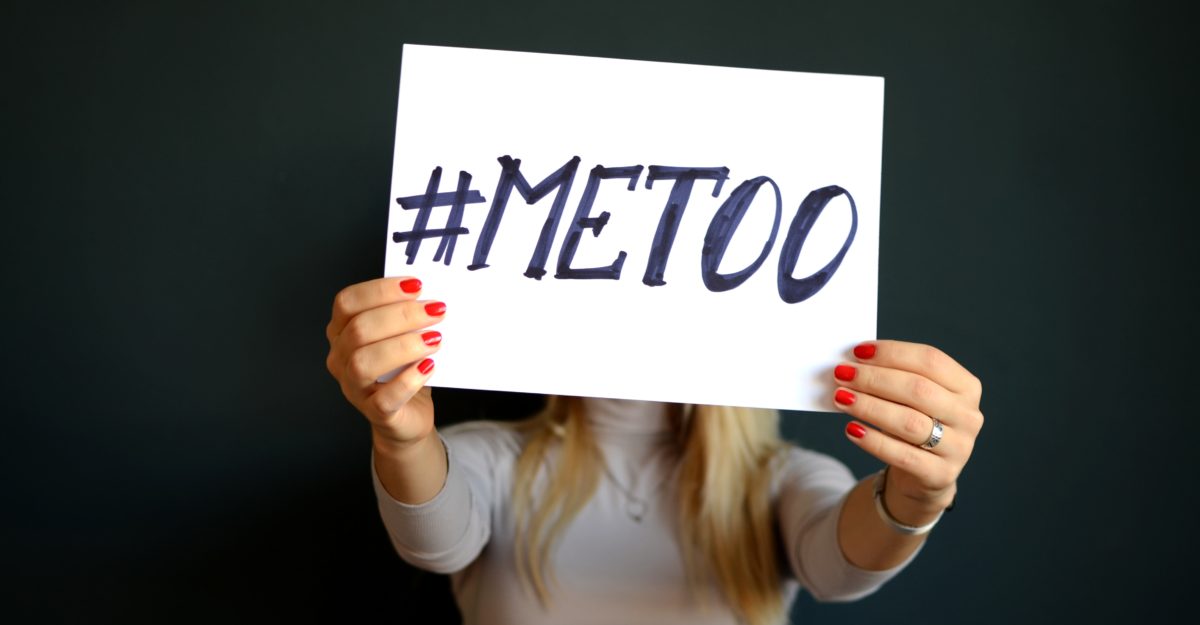Silent No More: the Weinstein Verdict, #metoo and Employer Obligations

The New York Times Weinstein expose, published in early October 2017, detailed decades of sexual harassment, abuse, and assault of women by the movie mogul and opened a floodgate.
Through the end of that year, and into the next, the #metoo movement against sexual harassment and sexual assault spread across the internet like wildfire, with women (and in some cases men) sharing their experiences, empowering and supporting one another, and ultimately exposing the colossal magnitude of this serious issue.
The global movement spanned continents and countries. #metoo was used 19 million times on twitter between October 2017 and October 2018; that’s over fifty-five thousand tweets per day.
If you’re like the team at Samfiru Tumarkin LLP, you have been intently following the Harvey Weinstein case from the outset.
The women who testified against Weinstein faced him, and the world, to share intensely private experiences in order to hold Weinstein accountable.
In doing so they helped to expose the workplace and industry realities that have allowed Weinstein (and so many others) to go so long without consequence. We all owe them immense gratitude for their strength and courage.
The #Metoo Movement
As it developed, the #metoo movement became increasingly focused on sexual harassment and assault in work environments, and the prevalence of manipulation and abuse of power which often go unchecked in these circumstances.
As the numerous accusations against Weinstein and other well-known men in powerful positions began to embolden employees in all areas of work to come forward and expose the harassment and abuse they experienced, many employers received a rude awakening to the realities of their workplaces and the necessity of taking swift and immediate action.
One of the most critical things that the Weinstein case exposed was the appalling culture of silence that existed around him. His behaviour was not unknown to the studio or others in the position to stop him much, much earlier.
Through the course of the allegations coming forward, it came to light that in 2015, Weinstein and the board of his film company executed a contract which prevented the company from terminating his employment over sexual harassment claims as long as he paid the women off himself and paid a “sliding scale” fine to the company.
Needless to say, this condonation created serious and significant issues for the company, and Weinstein, when it came to light.
Employers should take this as an impetus for action
While Weinstein was not found guilty on all counts, the verdict made it clear that such a blatant abuse of power cannot, and will not, be tolerated, regardless of the individual’s status, wealth, position, or ability to “catch and kill” any accusations made against them.
While the guilty verdict was a watershed moment, ultimately it was a small step towards the bigger goal: stopping people in positions of power or prestige from behaving, in and outside of the workplace, with complete disregard for the law, and creating better, safer circumstances for all individuals working in environments where they may be vulnerable to such abuse.
Employees have the right to a harassment-free workplace, and employers need to make it an ongoing priority to implement strong policies and procedures to prevent harassment and abuse.
These policies should inform employees of their rights under the applicable legislation, as well as set out a clear and private procedural route by which employees can inform management of any issues they experience.
Following #metoo, it appears that many employees are becoming better informed of their rights, including to a workplace free from harassment. As a result, we are seeing an increased number of complaints involving toxic work environments and human rights claims.
Employer Liability for the Actions of Employees
Under the law, employers are vicariously liable for the actions of their employees. Ignorance is not bliss.
When sexual harassment or abuse takes place in the workplace and the employer fails to deal with it effectively, it has been shown to affect productivity and morale and is known to cause increased absenteeism. This means that, besides the obvious moral obligation to protect employees, it is also in an employers’ best interest from a business perspective.
To do so, employers should ensure that they are conducting proper, thorough investigations when harassment or abuse is reported by an employee. One important, but often overlooked, element includes keeping the employee informed of the progress the investigation as it proceeds, in order to help them to feel supported and more comfortable at work in the interim before a conclusion is reached.
Thankfully, especially following #metoo, we have observed that many employers are giving credence to allegations of abuse and taking their investigations seriously, including by hiring an external investigator.
One area which could be improved upon is ensuring appropriate discipline is used. Specifically, where the results of an investigation find that the harassment allegations are founded, employers should be treating the incidents as serious breaches of company policy.
The consequence should meet the seriousness of the offence, and members of management or the upper echelon of the business should not be free from facing them; appropriate discipline should take place regardless of an individual’s status within the company.
Employers should also consider their ongoing obligation to ensure the safety of their employees, and if appropriate, should consider options such as moving the offender from any role where they supervise the complaining employee and monitoring the offender’s conduct in the workplace to prevent future offences.
Weinstein will be sentenced soon and is facing five to twenty-nine years in prison. While not all workplace harassment reaches such criminal levels, even less violent offences can have a serious effect on employees and business success.
It is imperative that employers take their obligation to provide a workplace free from harassment seriously by taking appropriate and immediate steps to prevent and address allegations. Employees are becoming better informed of their rights, and as a result, they are no longer staying silent.
If you are the victim of workplace harassment in Ontario or British Columbia you may need to speak with an employment lawyer to ensure that your rights are represented. Contact one of our legal professionals for more information.




